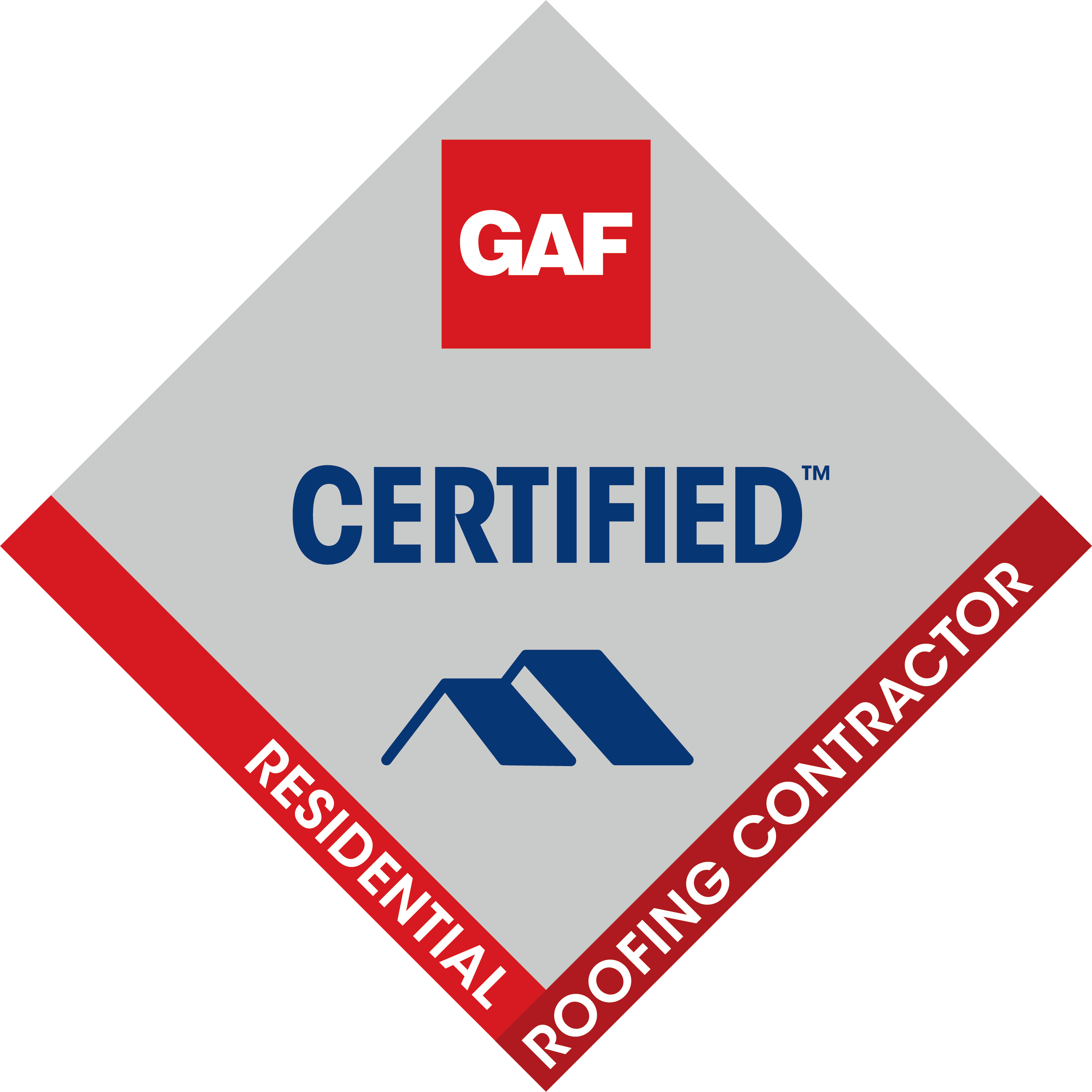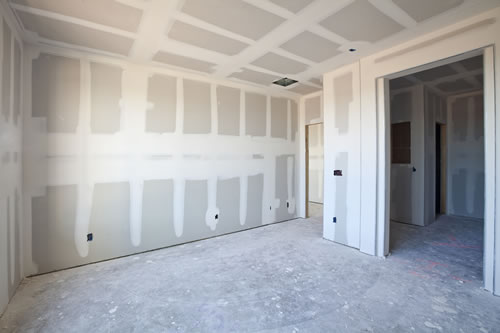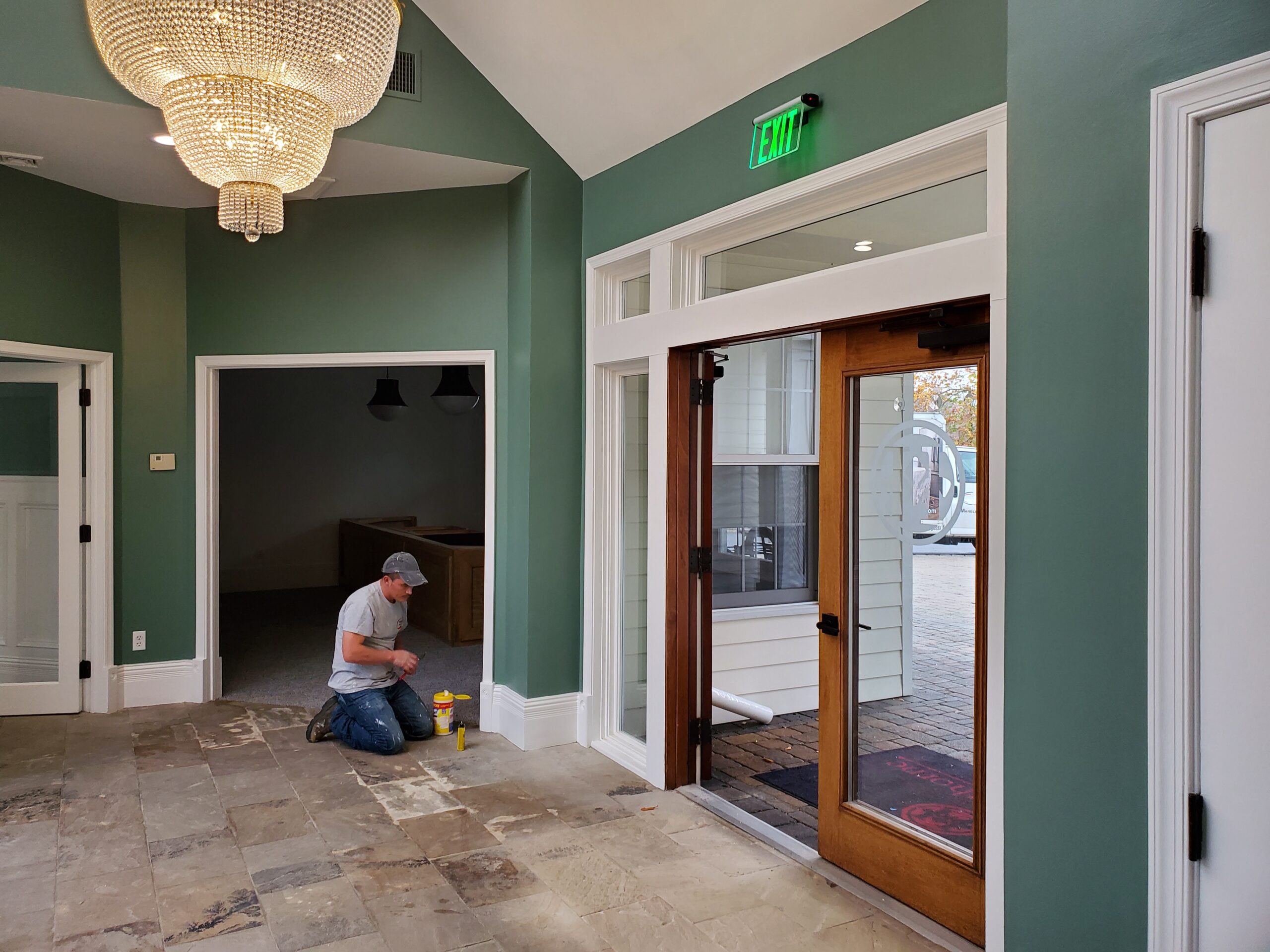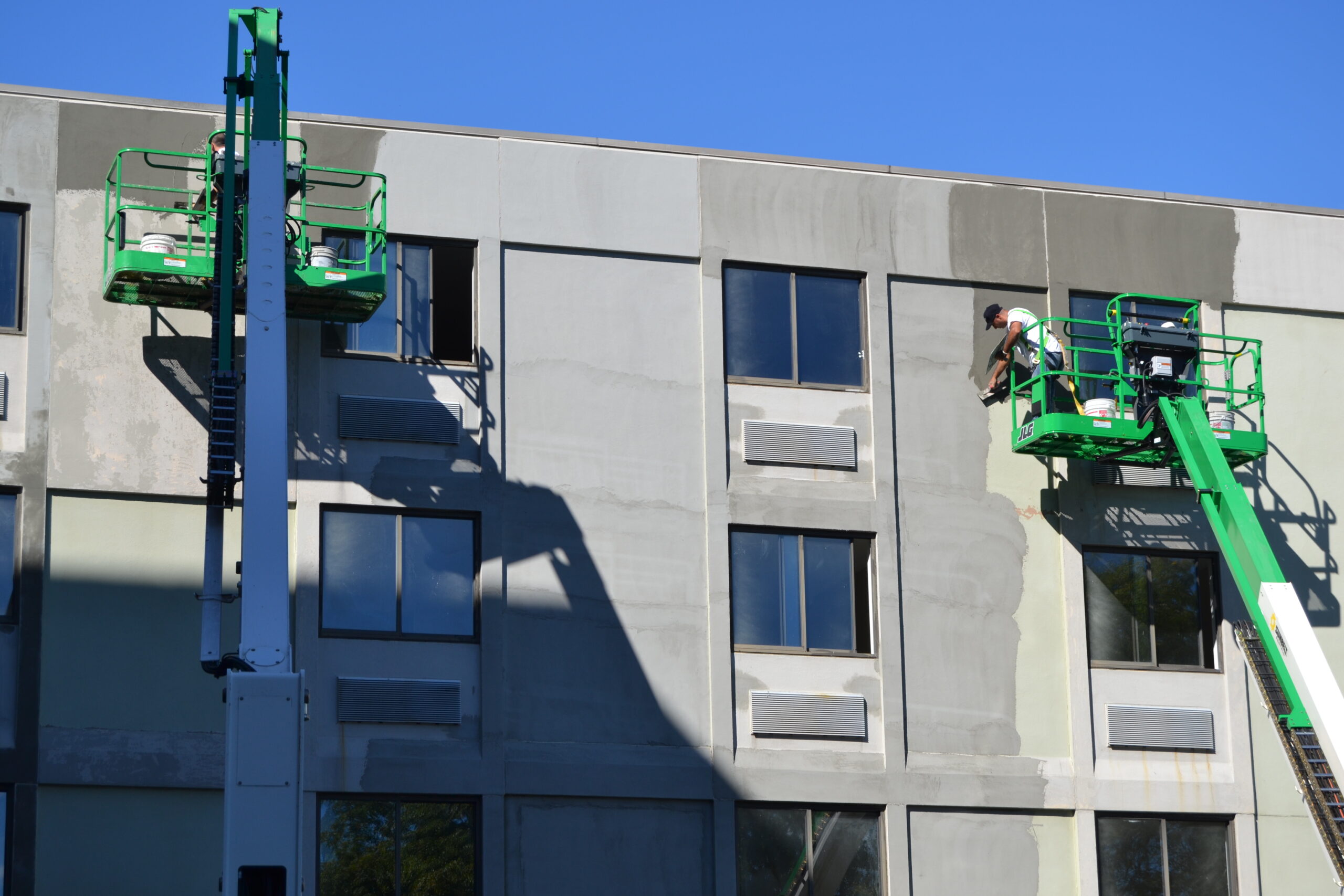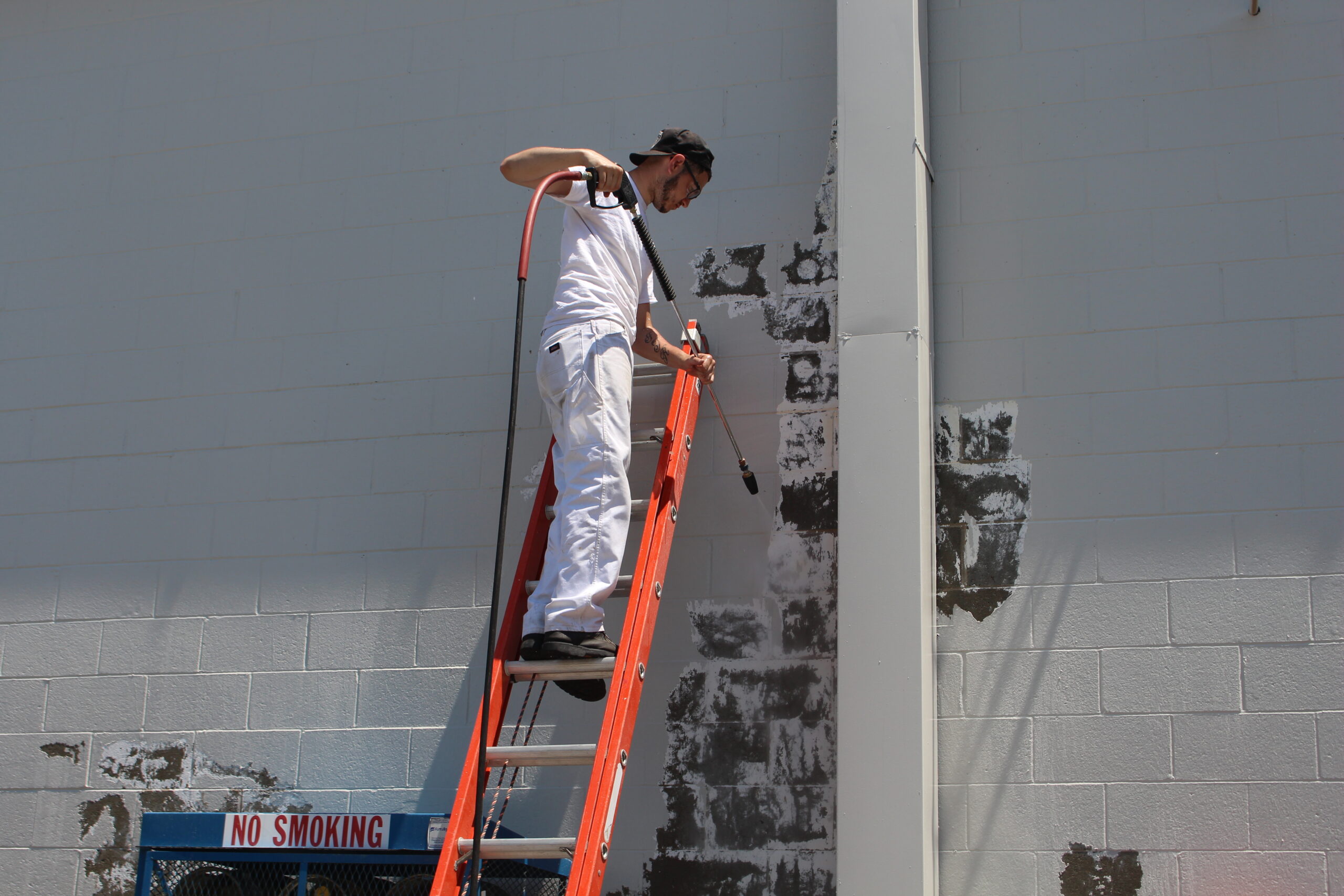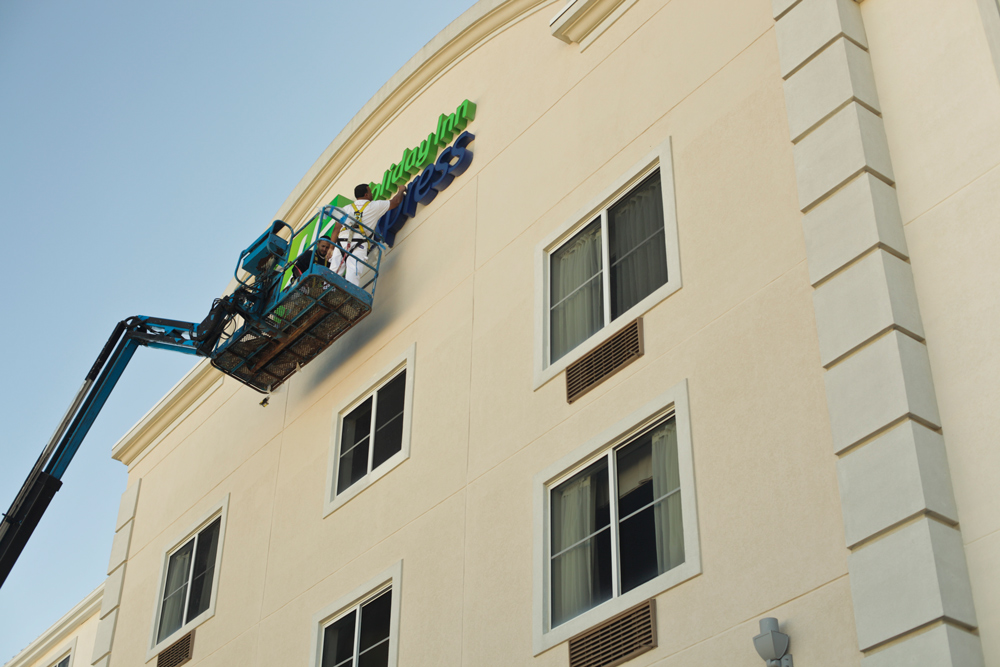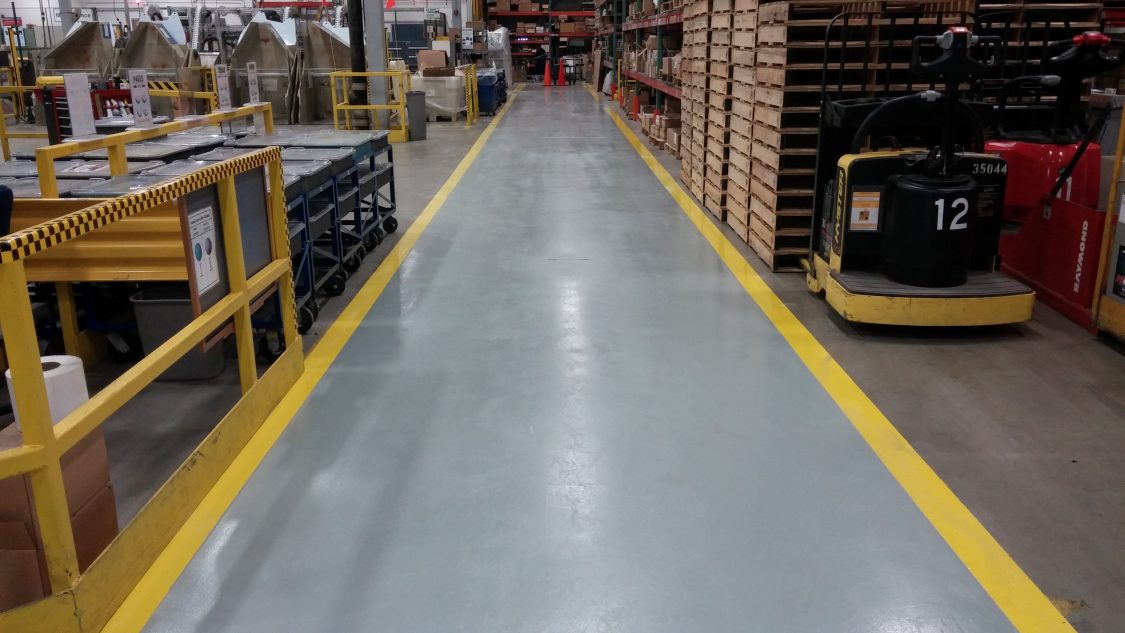
Ideal for a number of different applications ranging from garage floors to laundry rooms, commercial spaces to basements, epoxy flooring is growing in popularity amongst commercial, industrial and residential property owners. Not only does epoxy flooring protect the floor and extend its life, but it is also a great way to create an attractive and easily-to-clean surface. If you’re in the market for a new floor coating, you’ll find a wide variety of epoxy flooring products, qualities, colors, and application methods available to you.
While many big-box hardware chains such as Home Depot or Lowe’s offer Epoxy Floor Coating kits, primarily for garage floor applications, these may not be the best solution for your particular application. Let’s take a look at some of the main differences between “Do-it-Yourself” epoxy applications and hiring a professional.
DIY Epoxy Flooring vs. Professional Installation
- Surface Preparation: Professional installers carefully evaluate your surface prior to making application recommendations and may use a variety of products to prepare your floor for epoxy. For example, a degreaser may be used for oil stains or a grinder may be used to achieve maximum porosity and surface smoothness. With DIY kits, a mild citric acid wash is usually provided, but it is not strong enough to remove previously applied sealers, paints, and other surface imperfections that will cause the epoxy to peel off over time.
- Surface Repair: To provide a secure and smooth floor surface for the epoxy flooring to be applied to, a professional epoxy flooring company will fill and repair cracks, holes, and eroded areas of the concrete with a special epoxy and will grind the floor down to its desired smoothness. Not only is this product not included in DIY kits, but it is also a tremendous amount of additional labor and equipment that many DIY kit buyers do not anticipate.
- Warranty: Generally speaking, there is no warranty provided with DIY products, whereas professional installers not only have an incentive to take great care in their work, they will supply you with a much longer warranty. Warranties vary by project, however, a re:fab team member can assist you in learning more.
- Product Quality: In order to provide a DIY kit that is relatively inexpensive, manufacturers must dilute the density of the resins in the coating material. The diluted density can range anywhere from 30-40% solids, whereas professionals use an epoxy with a density of nearly 95-100% solids. These professional-grade epoxies sink more thoroughly into the concrete for optimal adherence and provide a thicker and more durable coating than the watered-down products.
- Material Options: The DIY epoxy flooring kits are very limited in the colors and texture options available to buyers. In fact, many DIY kits are available only in tan, grey, or black and provide a very small bag of decorative chips, which you must attempt to spread evenly throughout the surface before the epoxy cures. Professional installers, on the other hand, have access to a myriad of colors and chip combinations to provide customers with a wealth of options to suit all their flooring needs.
- Sealant and Protection: Professional installers will consult with you on the best floor protection for your particular situation and will coat your new epoxy surface with a protective, easy-to-clean sealer. This product also seals down the decorative chips. When you choose a DIY kit, no sealer is provided and you will have to consult with store employees or turn to the Internet to decide which product is best for you. As one of the most important steps in protecting your new floor, you’ll want to get this step right!
- Dangers: The biggest and most dangerous safety concern with epoxy resin is the fumes that it gives off. If you choose the DIY kits, you will need to ensure the area you are working in is well ventilated. Additionally, people have been known to have serious reactions to epoxy paint on their skin. Proper precautions should be taken. Of course, should you choose professional installation, you will not need to worry about these concerns.
- Downtime: The DIY epoxy flooring kits generally require 5-7 days of drying time to prevent from what industry professionals call “hot tire pickup.” On the other hand, when you choose professional installation, downtime is no more than 24-hours, while full chemical resistance will develop in approximately 5-7 days. You won’t have to worry about “hot tire pickup” with a professional installation.
These are just a few of the many differences between having an epoxy floor professionally installed and working with a DIY kit from the local hardware store. Additionally, these DIY kits are typically for garage-type applications and should not be used inside the home. They are also not enough to cover the scope of an industrial or commercial project.
Professional Epoxy Flooring Installation
Whether you’re planning a large commercial project such as a car dealership renovation, an industrial flooring project to freshen up a workspace, or would like to learn more about residential applications such as garage floor, basement, or laundry room projects, our team at re:fab would be delighted to speak with you.
As professional epoxy flooring installers with more than two decades of experience and product knowledge, there is no better New England painting company to assist with all your epoxy flooring needs. We also encourage you to fill out our Estimate Request Form and a member of our re:fab team will be happy to provide you with more detailed information regarding your specific needs. Connect with us today to learn more!


